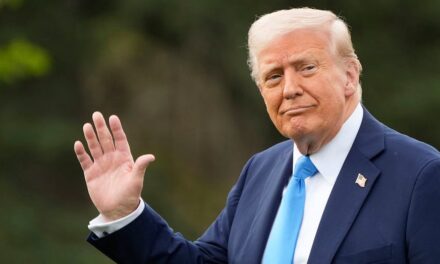In a significant political development following the contentious elections, Mark Cuban, who played a prominent role as a surrogate for Vice President Kamala Harris during her campaign, has openly acknowledged and congratulated President-elect Donald Trump on his recent victory. This concession comes at a time when the nation continues to grapple with the aftermath of one of the most closely-watched elections in history.
Cuban, a well-known entrepreneur and owner of the Dallas Mavericks, has been a vocal supporter of Harris throughout the campaign. His endorsement played a key role in rallying support and mobilizing voters. However, in the spirit of democracy and sportsmanship, Cuban has now urged Americans to accept the election results, asserting, “You won fair and square.”
His statement has sparked a mix of reactions across the political spectrum, reflecting the heightened emotions that have enveloped the nation in the past few months. For some, Cuban’s acknowledgment is a crucial step toward easing tensions and promoting unity after a highly divisive campaign season. For others, it signifies a need for introspection and recalibration among the supporters of Harris and her political allies.
The election cycle saw widespread debate on issues ranging from economic policy to social justice, with supporters of both candidates voicing strong opinions on the direction the country should take moving forward. President-elect Trump’s campaign focused heavily on reiterating themes from his previous administration, emphasizing law and order, economic growth, and robust foreign policies. Meanwhile, Harris’s campaign pivoted towards inclusive governance, healthcare reform, and building upon the achievements of the previous Democratic efforts.
Cuban’s decision to concede and publicly congratulate Trump emphasizes the importance of democratic principles and the peaceful transfer of power. While some Democratic supporters have expressed reservations about Cuban’s public concession, others see it as a pragmatic step that underlines the importance of prioritizing national stability and unity.
Cuban’s public statement also comes amid calls from several political figures, including outgoing presidents, for a smooth transition. Historians and analysts often highlight the importance of this tradition as decisive for maintaining America’s global image as the beacon of democracy. Just as previous political adversaries have buried the hatchet post-elections, Cuban’s concession serves as an appeal to the broader political coalition to embrace the electoral outcome and focus on collective national interests.
Reports suggest that Trump’s campaign is already in the planning phases of the transition process, addressing cabinet picks and policy decisions that will set the tone for the upcoming term. The President-elect has pledged a vigorous approach to steer the nation through challenges such as economic recovery in the wake of the global pandemic, addressing social inequalities, and bolstering national security.
During his campaign, Trump also promised to deliver on long-standing conservative priorities, solidifying his appeal among his core base. These priorities include advancing judicial appointments, tax reform, and deregulation, policies that his supporters consider fundamental to reviving the nation’s economic health and preserving individual liberties.
On the domestic front, Cuban’s acknowledgment of Trump’s victory may serve to reassure hesitant investors and calm market uncertainties that often accompany election cycles. The businessman is known for his keen insights into economic trends and market stability, and his endorsement may also serve as an implicit nod to the business community to prepare for a seamless transition with confidence.
As the nation gears up for the new administration, both supporters and critics of Trump will be closely watching initial policy outlines and cabinet picks. These choices will not only set administrative priorities but also serve as indicators of how the infrastructure, healthcare, and education sectors may evolve under Trump’s leadership.
While Cuban’s acknowledgment does not diminish the disappointment felt by Harris’s supporters, it reaffirms the value of political maturity and the acceptance of democratic outcomes. As both political teams shift focus from campaign trails to governance and policy-making, the ultimate goal remains to uphold the tenet of serving the American public effectively and justly.
The post-election period, characterized by policy previews and leadership selections, highlights the value of collaboration and bipartisanship in addressing the nation’s pressing issues. Cuban’s gesture could be seen as an invitation for dialogue and potential cooperation, attracting diverse viewpoints to work towards shared objectives for national progress.
The outcome of this election, marked by unprecedented voter turnout and significant challenges related to public health and economic pressures, underscores the vitality and resilience of American democratic practices. In recognizing the legitimacy of Trump’s victory, Cuban, along with other political figures, continue a long-standing tradition of promoting civic harmony and national interest above partisan divides.
As the dust settles on this election, Cuban’s congratulatory message to Trump underscores the enduring spirit of democracy — recognizing the voice of the people, respecting the transition process, and moving forward to tackle the many challenges that lie ahead. While political debates and differences in opinion will undoubtedly persist, this moment provides an opportunity for introspection and redefining what it means to unite as one nation in the pursuit of its ideals.
For Americans, the path forward involves embracing the democratic choice, engaging constructively with varied perspectives, and reaffirming the commitment to a shared future where every voice counts. Through this spirit of cooperation and mutual respect, the transition to the Trump administration becomes not only an end but also a beginning — a chance to build upon lessons learned and to strive toward the collective advancement of the nation.
































